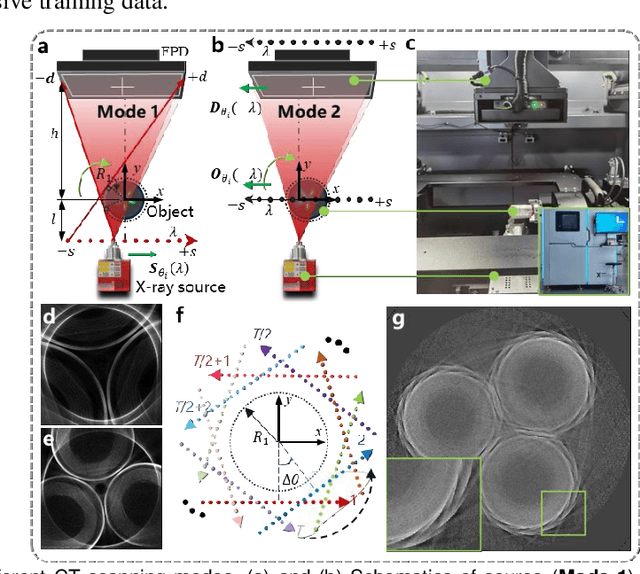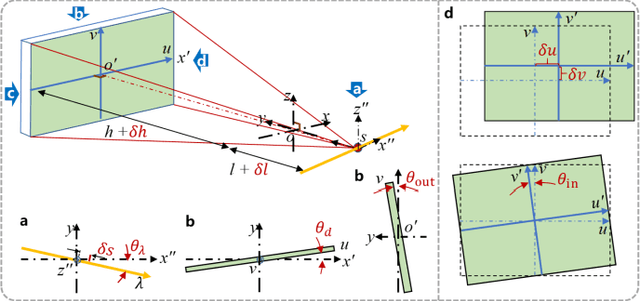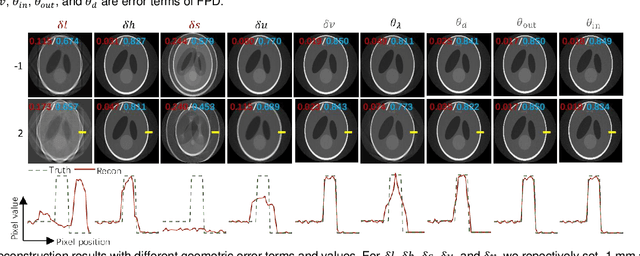Geometric Artifact Correction for Symmetric Multi-Linear Trajectory CT: Theory, Method, and Generalization
Paper and Code
Aug 27, 2024



For extending CT field-of-view to perform non-destructive testing, the Symmetric Multi-Linear trajectory Computed Tomography (SMLCT) has been developed as a successful example of non-standard CT scanning modes. However, inevitable geometric errors can cause severe artifacts in the reconstructed images. The existing calibration method for SMLCT is both crude and inefficient. It involves reconstructing hundreds of images by exhaustively substituting each potential error, and then manually identifying the images with the fewest geometric artifacts to estimate the final geometric errors for calibration. In this paper, we comprehensively and efficiently address the challenging geometric artifacts in SMLCT, , and the corresponding works mainly involve theory, method, and generalization. In particular, after identifying sensitive parameters and conducting some theory analysis of geometric artifacts, we summarize several key properties between sensitive geometric parameters and artifact characteristics. Then, we further construct mathematical relationships that relate sensitive geometric errors to the pixel offsets of reconstruction images with artifact characteristics. To accurately extract pixel bias, we innovatively adapt the Generalized Cross-Correlation with Phase Transform (GCC-PHAT) algorithm, commonly used in sound processing, for our image registration task for each paired symmetric LCT. This adaptation leads to the design of a highly efficient rigid translation registration method. Simulation and physical experiments have validated the excellent performance of this work. Additionally, our results demonstrate significant generalization to common rotated CT and a variant of SMLCT.
 Add to Chrome
Add to Chrome Add to Firefox
Add to Firefox Add to Edge
Add to Edge